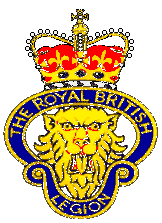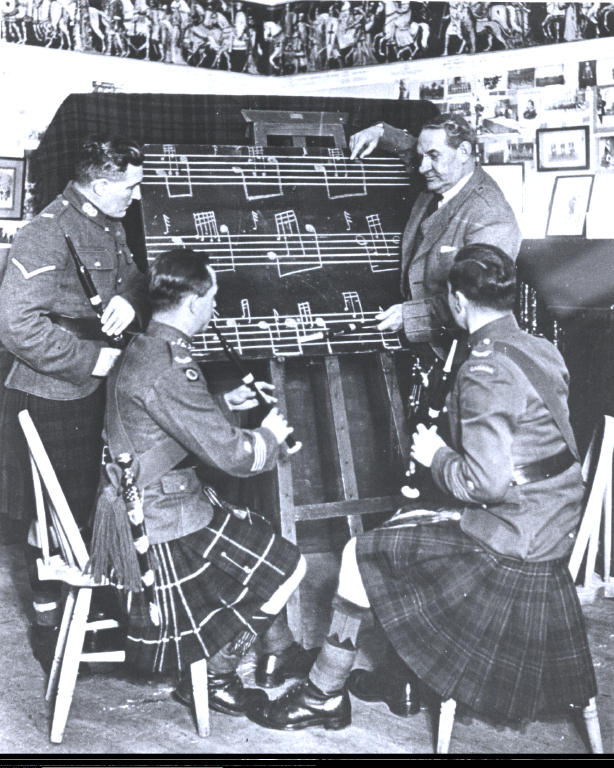As I said in our first look at this competition from nearly half a century ago, the programme contains some candid thoughts and interesting comments, writes the Editor. This first part may bring a lump to the throat of many an old soldier who reads it, and in this year of the Somme centenary we should remember that in 1969 many who fought there would still be around to relive the events of that fateful battle.
 ‘Welcome to our annual meeting, especially those who are competing for the first time and others who have come from a’ the airts to play and to listen. Our gathering at this place every year is not only to express achievement in, and criticism of, our ancient art, but to renew auld acquaintance and, to some extent, to recapture and relive the days gone by when our comradeship was born ‘seeking the reputation even in the cannon’s mouth’.
‘Welcome to our annual meeting, especially those who are competing for the first time and others who have come from a’ the airts to play and to listen. Our gathering at this place every year is not only to express achievement in, and criticism of, our ancient art, but to renew auld acquaintance and, to some extent, to recapture and relive the days gone by when our comradeship was born ‘seeking the reputation even in the cannon’s mouth’.
‘Today is unique – every Scottish regiment has an ambassador here. Our combined service exceeds one thousand years. Some of the competitors come from our twenty pipe bands which, in the small towns and villages, contribute continuously to the advancement and improvement of our traditional music and kindred arts. They also fulfil a social need and provide the colour and pageantry inseparable from our tempestuous history. They are a constant reminder of past glory and pride in our manhood and a hope that both will be preserved for the generations to come.
‘Today we will be listening to tunes born in primitive times and in the lonely places of the universe, from the barren rocks of Aden to India’s coral strand, composed in anger, in triumph and in sorrow. The Scottish soldier’s life is regulated and announced by the great pipe from Reveille when Johnny Cope raises him from his pallet, to Lights Out when he is adjured to ‘sleep, dearie, sleep’ or ‘lie doon on his wee puckle straw’. There is a tune for every major event of the day. Officers dressing for dinner hear that ‘bannocks o’ barley meal’ will be on the table and even the trembling delinquent lined up outside the Commanding Officer’s orderly room is assured that, whatever befalls, ‘a man’s a man for a’ that’.
‘Today the pipes may remind us of the heights at Keren or the gloom of the Arakan Forest. To a few the memories of the Somme may be as fresh as those of last Hogmanay, with only a discreet hearing aid to give the lie. But whatever nostalgia the pipes may call forth, today they emphasise our purpose and our covenant as legionnaires to
perpetuate in civil life, to consecrate and sanctify, our comradeship and devotion to the principles which have withstood the trauma of war and emerged unsullied. Today the pipes will pay tribute to those who never grew old and renew for us the memory of their youth and immortality. We will remember today – we will remember them.’
[wds id=”6″]Following this under a headline ‘Gossip’ we have:
‘Apart from a few dark horses this year, the high standards reached by most competitors is well known, and it is a pity that there is not a trophy for everyone. Last year’s star turn, Hector (Pennyghael) MacFadyen [pictured top], will obviously be an odds-on favourite, with John MacDougall, George Lumsden and Iain McLeod the dangers.
‘Hector started piping at the age of nine under Duncan Lamont and remained under him until he ‘went for a soldier’ at age eighteen. During his service, both Duncan and Hector acquired considerable knowledge from Pipe Major Willie MacLean of Kilcreggan. Lamont’s superlative knowledge of piobaireachd came to him from John MacDougall Gillies, Pipe Major Willie Gray, Callum MacPherson of the MacPherson School and Pipe Major Willie Ross. Hector received instruction from Willie Ross on Mull.

‘He won the Open Strathspey and Reel at Tobermory Games in 1947 and it was here that he met Pipe Major Donald MacLean (Lewis), who chastised him for not competing in the Piobaireachd. Hector’s association with Donald lasted until the latter’s death in 1964 and these 17 years have been his inspiration. His regret is that Donald did not live to share the honour of his winning of the Highland Society of London’s Gold Medals at Oban and Inverness in 1964. In the years 1967-68 he won 17 major competitions, including the Pipe Major Robert Reid. Memorial Medal (outright), Bryant & May Trophy (fifth year in succession) the Dunvegan Gold Medal, the Captain Kemble Challenge Star and the MacCrimmon Silver Chanter, presented to him by Dame Flora MacLeod of MacLeod. Other trophies we have not mentioned due to a limitation of the size of this programme.
‘John MacDougall is a younger piper, but won three firsts during his National Service in Germany and was a Gold Medallist at the Northern Meeting in 1960. He won a silver medal there in 1966 for a competition confined to former winners {the Former Winners’ MSR?]. John has taken home the Tom Matheson Challenge Trophy three times in past years and the Sheriff Levitt Trophy twice; also the Harriet E. Duncan Challenge Trophy. He has won the Queen’s Own Highlander’s Jug three years running and is obviously the one to watch in the first three events. He teaches piping at the Further Education Centre, Arbroath, and has certainly come a long way from the Bucksburn Boys’ Brigade where he was taught piping at the age of twelve by David Duncan, and later the pibroch by Pipe Major Bob Brown.
‘The Edinburgh City Police contingent is the largest from a Branch. They mostly belong to the Almond & District Branch and are expected to be represented in the prize-winners in every event. Good piping and good luck to one and all, particularly to those competing in the confined marches. This is where the piper begins his prize-winning, and it is an event of considerable interest to the old hands and new.’
















Recent Comments